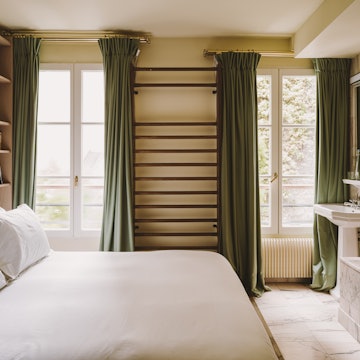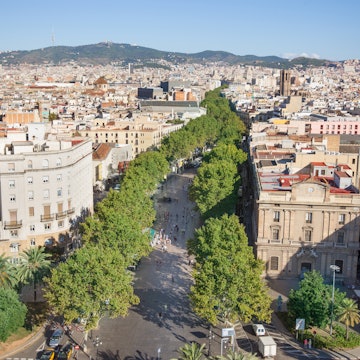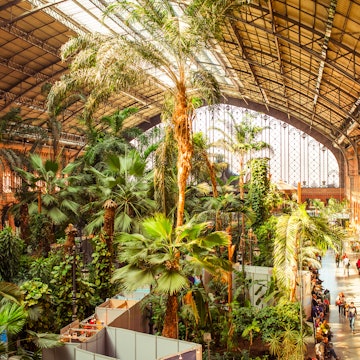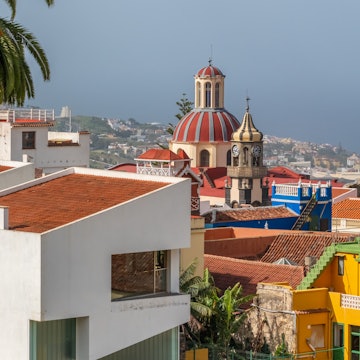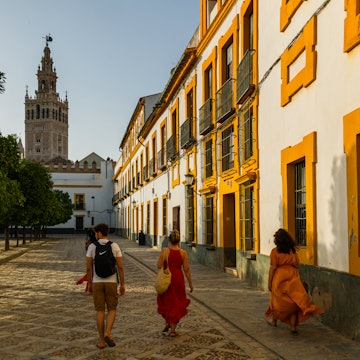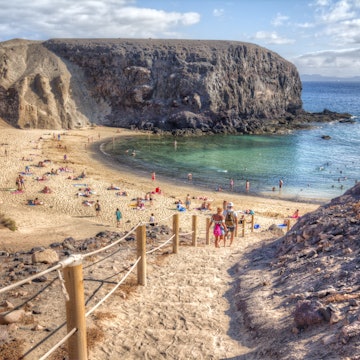

A plaza in the Barrio de Santa Cruz, Seville. Margaret Stepein for Lonely Planet
Euro for euro, Seville offers great value to travelers, especially compared to many other cities in Europe. Still, with so much to see and do, costs can add up, challenging even travelers on the most carefully planned budget. Luckily, there are a host of free things to do in Seville, ranging from flamenco performances to contemporary art exhibitions to visits to historic monuments.
Looking to pack in as much as you can, for less? Here the top free things to do in Seville.

1. Start at the cathedral and bell tower
Seville’s absolute must-see, its cathedral, is the biggest Gothic example in the world, and must have awed 15th-century worshippers. You can admire the complex – including the massive Giralda (bell tower) – from the outside on Plaza Virgen de los Reyes and Plaza del Triunfo. Entering the sanctuary requires a paid ticket – except every Monday from 4:30pm to 6pm, when you can admire the extraordinary carved gold altarpiece, the tomb of Christopher Columbus and other highlights for free. Note that complimentary tickets must be booked online in advance.
2. Soak in the scene at Centro Andaluz de Arte Contemporáneo
For an unusual mix of history, art and industrial-religious architecture – not to mention pretty, peaceful gardens – head over the river to Isla de la Cartuja. A 15th-century monastery later converted into a ceramic factory (spot the colorful tiles) is today the Centro Andaluz de Arte Contemporáneo, a hub of contemporary creativity. Entry is free 7–9pm from Tuesday to Friday, and all day Saturday. Check the calendar for jazz concerts, DJ sessions and other events.
3. Chill out at El Viajero Sedentario
Choose from the cozy interior or pretty patio for a relaxed coffee in this boho cafe on the Alameda de Hércules – and stick around for the free film screenings, live music and poetry readings.

4. Explore Plaza de España
This gargantuan semicircular pavilion and its expansive plaza were designed in an eclectic revival style for a world’s fair in 1929. And with 48 ceramic tiled panels depicting scenes from all of Spain’s provinces, Plaza de España remains popular with Spanish visitors today. Take a stroll along the pretty canal, or let the huge fountain gently splash you on a hot summer’s day. You can also see flamenco dancers perform daily outside the main entrance.

5. Take a walk in Parque de María Luisa
Parque de María Luisa is a favored haunt of Sevillano families – children love its pools populated with ducks and fish, gazebo-topped mountain and playgrounds, while architecture fans will love the park’s extravagant pavilions, built for the Ibero-American Expo of 1929.
6. See new creations at Fundación Valentin de Madariaga
In one of those pavilions next to Parque de María Luisa, you can see international contemporary art. In addition to temporary exhibitions, you can take in selections from the permanent collection, which is themed around nature and the environment and includes pieces by Andy Warhol and Joseph Beuys.

7. Go for baroque at Iglesia San Luis de Los Franceses
Seville’s most eye-popping baroque church, this circular temple dedicated to King Louis IX of France is a feast of gilt and extravagant carving. Entry is free every Sunday between 4pm and 7:45pm.
8. Reflect on Seville’s checkered past at the Inquisition Museum
Once one of the most terrifying buildings in Seville, the riverside medieval fortress of Castillo de San Jorge was the seat of the notorious Spanish Inquisition. Today, it’s open to the public as a museum that interprets the fate of those heretics – Jews and Muslims who converted to Catholicism but were suspected of still practicing their faith – ensnared by the inquisitors.
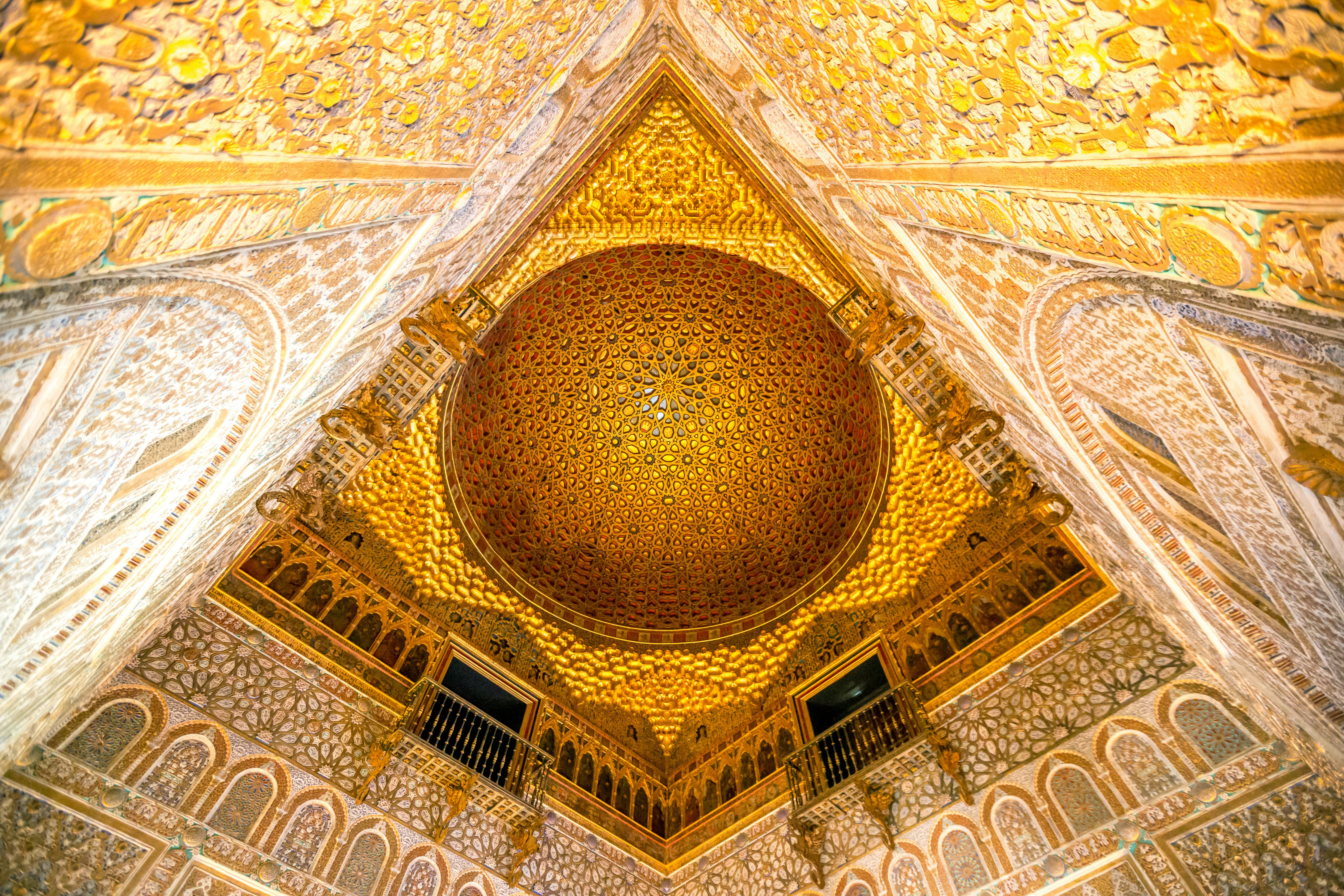
9. Take in a trio of Seville’s finest palaces
Three of Seville’s most architecturally eclectic and iconic palaces are free to visitors on Monday afternoons and evenings. An exemplar of Seville’s cultural history, the Real Alcázar gloriously blends Moorish, Gothic, Mudéjar and Renaissance elements, and its tiling and stucco work rival the Alhambra Palace for exquisite craftsmanship. Book free tickets online in advance (a €1 processing fee applies).
The smaller, 16th-century Palacio de la Condesa de Lebrija has superb Roman mosaics, while the Palacio de Las Dueñas was the favorite palace of Spain’s most colorful aristocrat, the late Duchess of Alba. The former offers free entry on Friday mornings at 10am, the latter on Mondays after 4pm.
10. Hang out at Gallo Rojo
A hot spot of cultural programming and eclectic decor, this afternoon cafe-bar near the Setas also serves as a hip gallery and cultural center, with jam sessions, live music, comedy and exhibitions. While you don’t need to order anything to enjoy the scene, it’s hard to resist the homemade cakes and craft beers here.

11. Get lost (on purpose) in Barrio de Santa Cruz
For many visitors to Seville, wandering through the narrow, windy streets of Seville’s old Jewish Quarter – and getting happily lost – is a highlight of their stay. If you can, navigate your way to Plaza Alfaro: the romantic curved balcony on the yellow-and-white house on the corner plays a role in the opera The Barber of Seville, when Figaro climbs up to find his lover Rosina.
12. Feel the duende at La Carbonería
This converted coal factory in Santa Cruz has live flamenco performances every night, as well as poetry readings, film screenings, art exhibitions and other cultural events – all offered free, with the purchase of a reasonably priced cocktail. Check La Carbonería’s Facebook page for the latest program.

13. Discover the reach of Spain’s empire at the Archivo de Indias
Built as a merchant’s exchange that thrived the abundance of goods from the New World, this UNESCO-recognized archive of Spain’s colonial era now houses a wealth of documentary evidence about the Spanish Empire. On a free visit, look out for the maps and ceramic figures that bring this long, rich and difficult period to life.
14. Visit the Iglesia Colegial del Divino Salvador
Built on the site of Moorish Seville’s main mosque – a 9th-century minaret and courtyard where the faithful washed before praying are still very much visible – Iglesia Colegial del Divino Salvador is the city’s second-most-important church, but draws almost no crowds. A vivid example of its multifarious history is the presence of a Virgin in the former mihrab. Entry is free from 4:30pm to 6pm on Sundays; reservations are required.

15. Browse for unique treasures at El Jueves flea market
Every Thursday morning on Calle Feria, near the Alameda, you can find more than 120 stalls piled high with everything from old military uniforms and religious paintings to postcards, books and magazines, jewelry, Lego figures and flamenco dresses. While you’ll probably be tempted to buy something, taking in the lively street scene doesn’t cost a cent.
16. Make like Carmen at the Antigua Fábrica de Tabacos
Much of Seville’s phenomenal wealth came from a vastly profitable monopoly on trade with America, including tobacco. Case in point: when the elaborate Fábrica de Tabacos opened in 1758, it employed 6000 people – mostly women, who made cigars and cigarettes by hand. The work force included Roma women from Triana – inspiriting the indelible character of Carmen, the fiery tragic heroine from Bizet’s operatic masterpiece. Today, the huge stone edifice is part of the University of Seville – and you can visit during a free tour, usually on weekday mornings. For up-to-date information, consult the university’s website.

17. Climb the Torre del Oro
This iconic riverside Moorish tower, built by the Almohad dynasty soon after the Giralda, is now a naval museum. You can check out its model ships and maps for free on Mondays. (Entrance is just €3 on the other days.) Don’t miss the fabulous river views from the roof.
18. Marvel at the Palacio de los Marqueses de la Algaba
Hidden behind Calle Feria market, this 15th-century palace features an outstanding Gothic-Mudéjar facade. Upstairs, the free-to-enter Mudéjar Art Interpretation Center explains this unique style of architecture, an only-in-Spain blend of Christian and Islamic elements. The small museum displays over 100 Mudéjar objects, and also explains how the intricate geometric patterns on azulejos (glazed ceramic tiles) were created.

19. Amble along Calle Betis
You’ll get some of Seville’s most best views as you stroll along this riverside street in Triana. The Torre del Oro, the bullring, and Isabel II Bridge will all come into view as you make your way along the broad pavement next to the river Guadalquivir. Seats carved into the stone wall that runs alongside the river make the perfect stopping points to admire the view and rest your legs. Local tip: since the bars that line Calle Batis are mostly tourist traps, head for Calle Pureza or the Mercado de Triana instead.
Take your Spain trip with Lonely Planet Journeys
Time to book that trip to Spain
Lonely Planet Journeys takes you there with fully customizable trips to top destinations – all crafted by our local experts.

















